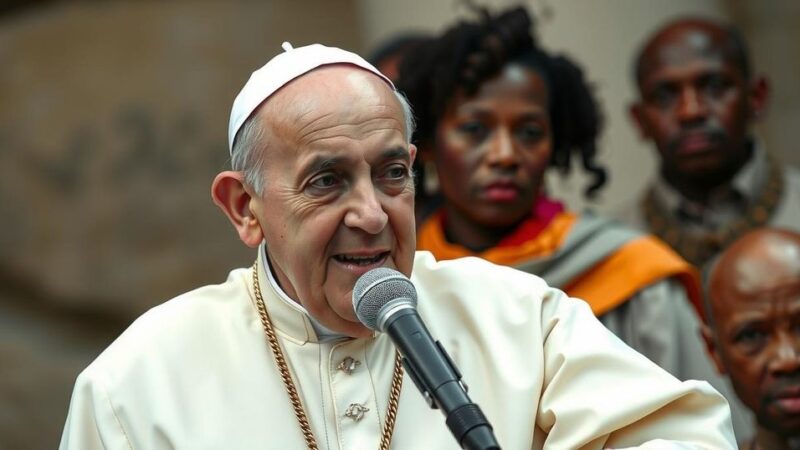COP29 in Baku represents a significant opportunity to overhaul global climate financing, as developing nations face escalating financial demands amid increased climate risks. With discussions centered on establishing a New Quantified Collective Goal (NCQG) for post-2025 financing, stakeholders must address the role of private contributions and find a path forward for robust funding mechanisms. Furthermore, enhanced cooperation among multilateral development banks underscores an urgent need for unified global action against climate change.
The 29th Conference of the Parties (COP29), convened in Baku, Azerbaijan, represents a crucial moment for addressing climate finance as it signals a follow-up to the previous year’s COP28 discussions aimed at phasing out fossil fuels. The event coincides with escalating extreme weather patterns and geopolitical tensions, placing an increased urgency on climate action. The primary objective articulated by Columbia Threadneedle is to establish a successor target for climate financing in developing nations, superseding the 2009 commitment of providing $100 billion annually until 2030. Given the accelerated demand for financing, the Independent Expert Group on Climate Finance estimates that developing countries, excluding China, will require approximately $2.4 trillion yearly until 2030. The New Quantified Collective Goal for Climate Finance (NCQG) will be a focal point of the discussions, addressing both the scale of required financing and the role of private sector contributions. The International Monetary Fund (IMF) has indicated that global public debt is set to exceed $100 trillion by the end of 2024, posing challenges for developed countries in providing external financial support amidst rising domestic climate-related expenses. Vicki Bakhshi, Head of Responsible Investment at Columbia Threadneedle Investments, highlights the simultaneous finalization of Nationally Determined Contributions (NDCs) by countries, which aim to extend the current climate action timeline from 2030 to 2035. Expectations surrounding COP29 vary. AXA IM, through Virginie Derue, projects that the conference will mainly advocate for heightened national contributions, alongside renewable energy and energy efficiency targets. However, the long-awaited fulfillment of the developed nations’ $100 billion annual commitment was postponed until 2022, with ongoing debates surrounding the high prevalence of loans in these funds. The proposed establishment of a Climate Financing Action Fund (CFAF) by the COP29 presidency, to be initiated with at least $1 billion in voluntary contributions, aims to bolster public and private efforts in addressing climate disasters in developing regions. Derue cautions that reliance on voluntary funding as an excuse for delaying a transition from fossil fuels is unacceptable. Discussions on a potential minimum tax for global billionaires, designed to enhance funding for climate initiatives, may remain under the radar at COP29 but are expected to garner attention as the Brazilian presidency of the G20 explores new tax frameworks, highlighted by economist Gabriel Zucman. Such a tax could potentially generate significant revenue; however, the actual allocation of these funds toward climate goals remains uncertain amid pressing national budget constraints. The COP29 conference will also see multilateral development banks proposing enhanced cooperation for climate financing. An unprecedented $125 billion was raised through multilateral development banks in 2023, with private finance nearly doubling since the previous year. As Nadia Calviño, President of the European Investment Bank (EIB), emphasizes the critical need for global leadership in climate action, her colleague Ambroise Fayolle calls for innovative solutions to facilitate increased financing and advisement for climate adaptation. COP29 stands as a transformative opportunity for climate financing, underscoring that ambitious action must be supported by adequate funding to effectively tackle climate challenges.
The background of COP29 encompasses the ongoing necessity for increased climate financing to meet burgeoning demands resulting from climate change impacts. Following previous commitments made in 2009, the substantial funding gap illustrates the urgency for a new financial framework to assist developing countries in managing climate risks. The conference is set against a backdrop of shifting geopolitical landscapes and heightened climate threats, indicating the critical need for robust international collaboration and financing solutions at this global forum.
In conclusion, COP29 presents a pivotal opportunity to reshape the landscape of climate financing, focusing on both immediate financial targets and long-term strategies. With high expectations from various stakeholders, including multilateral development banks and investment firms, the conference aims to outline a collective roadmap to ensure substantial financial resources are allocated to combat climate change effectively. The synthesis of public and private sector contributions will be essential for advancing global climate action commitments.
Original Source: www.fundssociety.com







